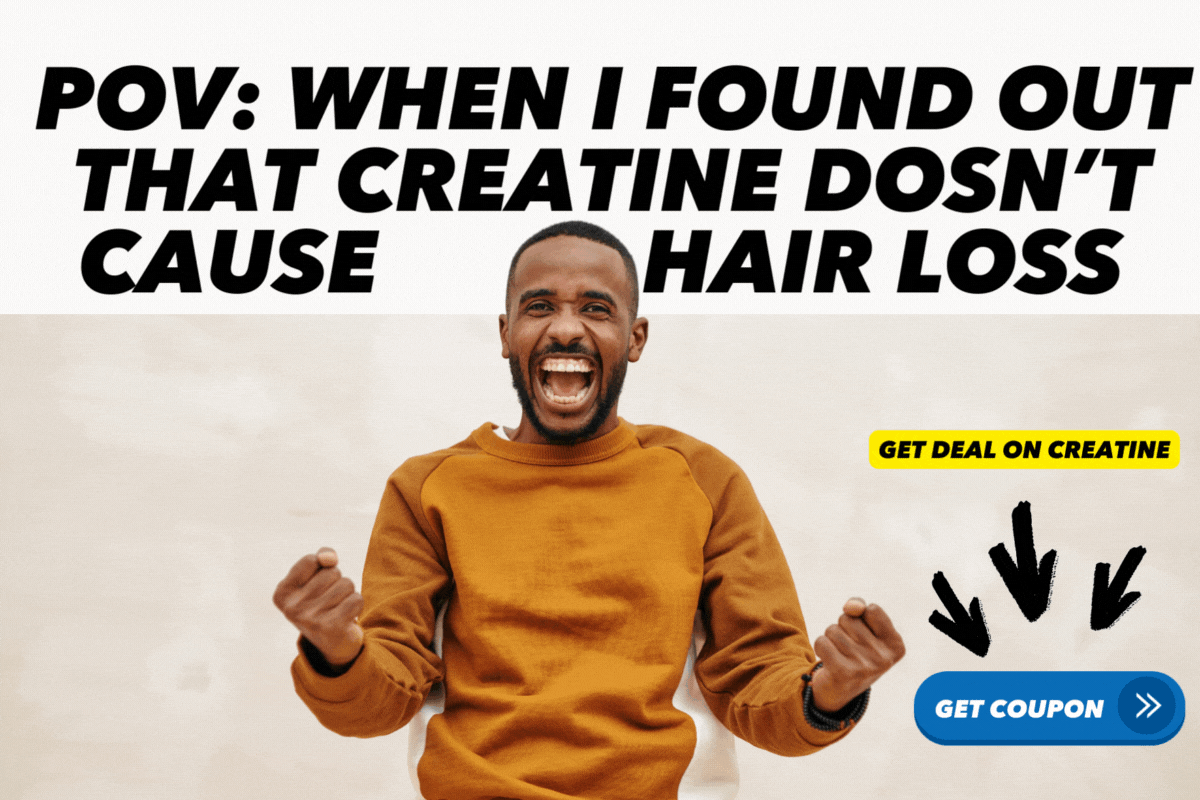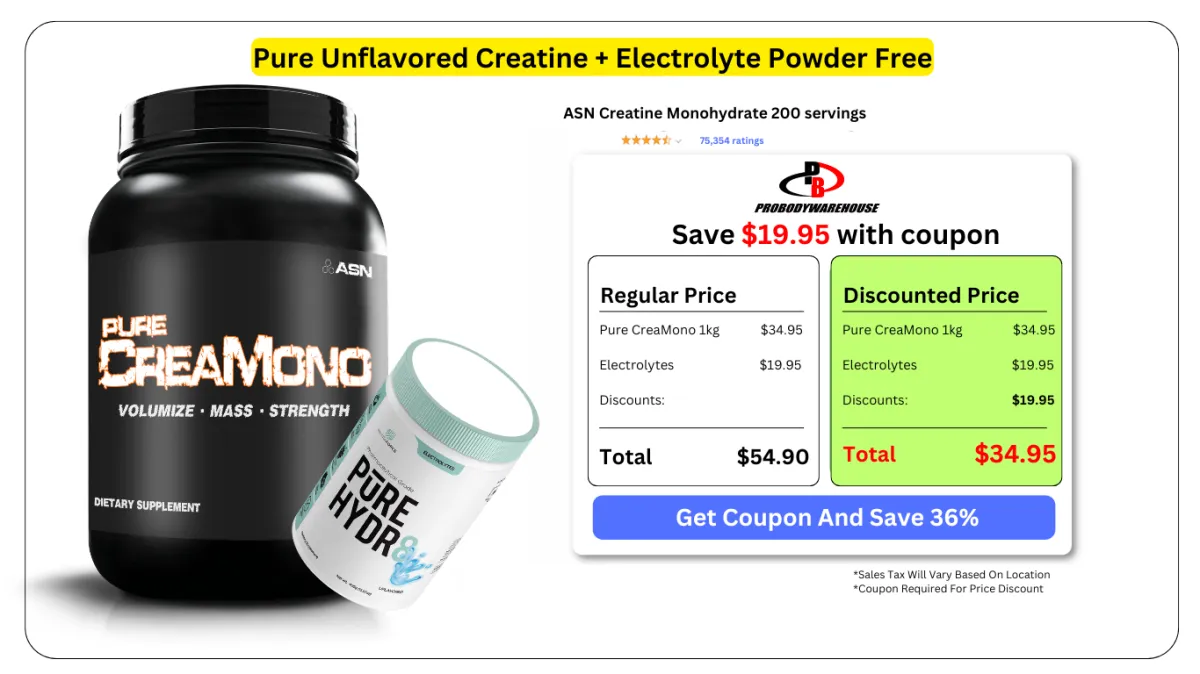
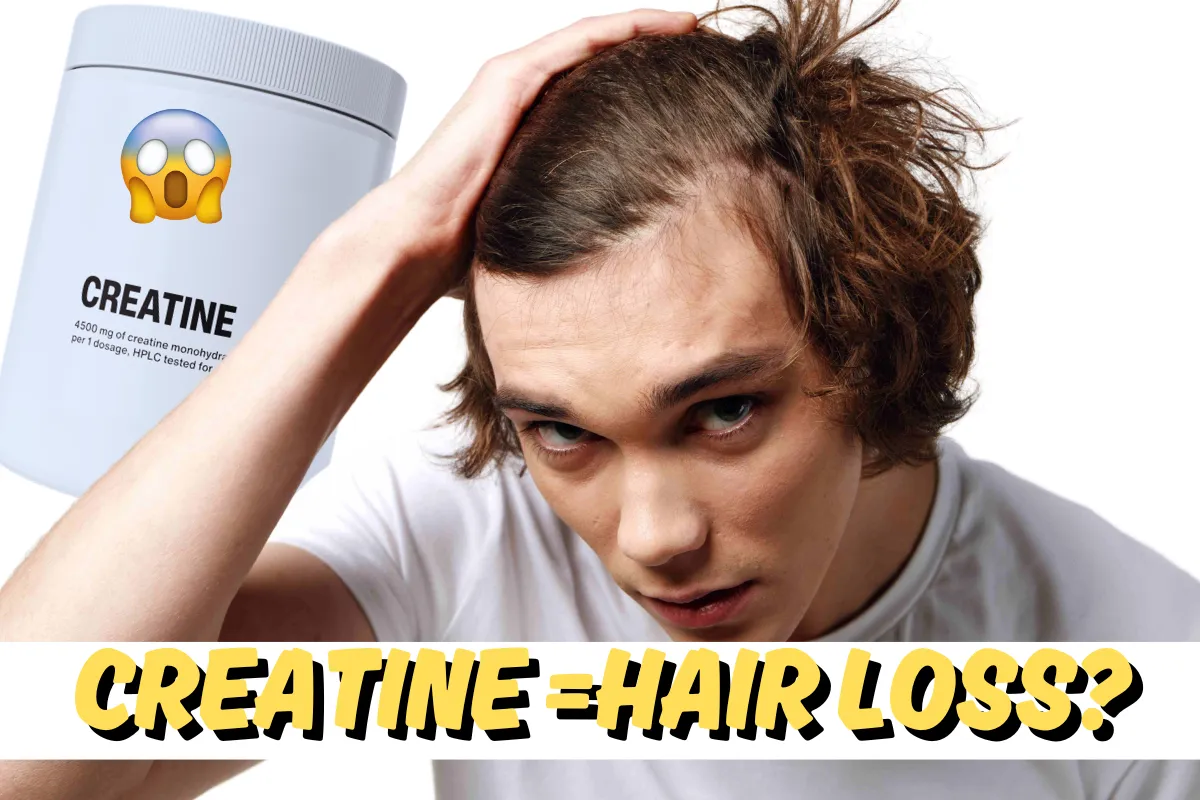
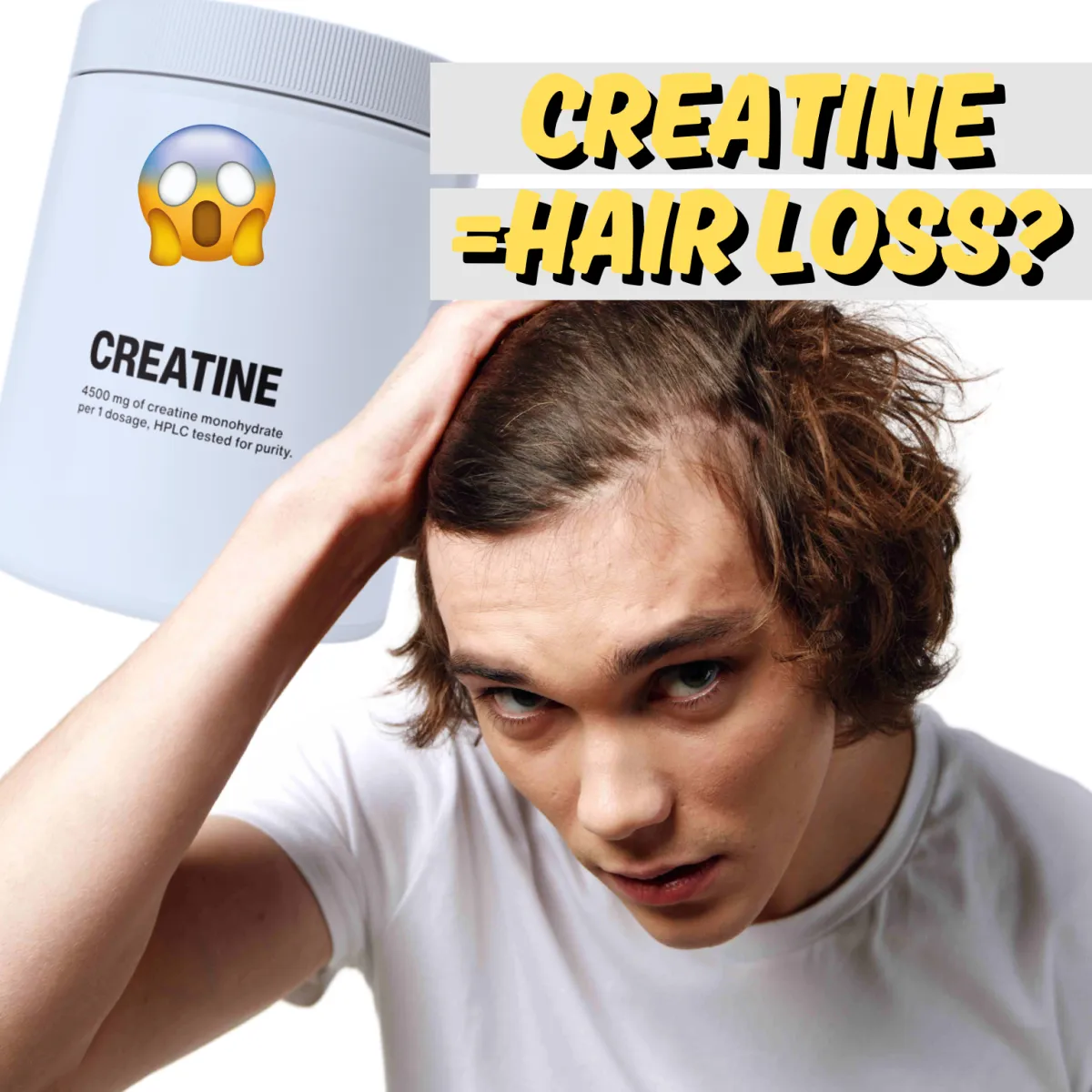
🧠💪 Does Creatine Cause Hair Loss? New Research Says Otherwise
If you've been steering clear of creatine because you’ve heard it causes hair loss, it’s time to reconsider. A fresh study has taken a serious look at the supposed link — and the results might surprise you.
But before we dive on how research works (and why replication matters)
How The Studies Work & Whey You Need Multiple Studies Matter
In science, one study alone rarely tells the full story. For a theory to be trusted, multiple studies must replicate the results — meaning different researchers, in different environments, with different participants, should reach similar conclusions. If follow-up studies can't replicate the original findings, the credibility of that original research weakens.
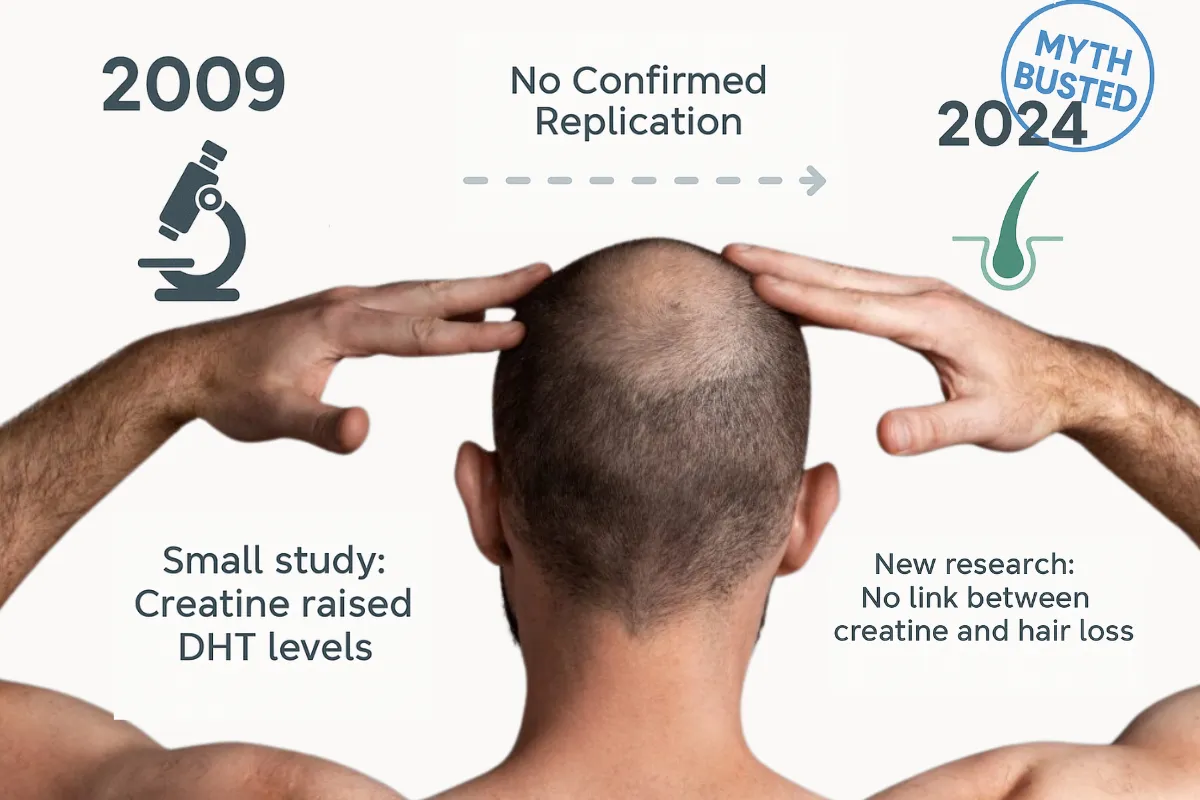
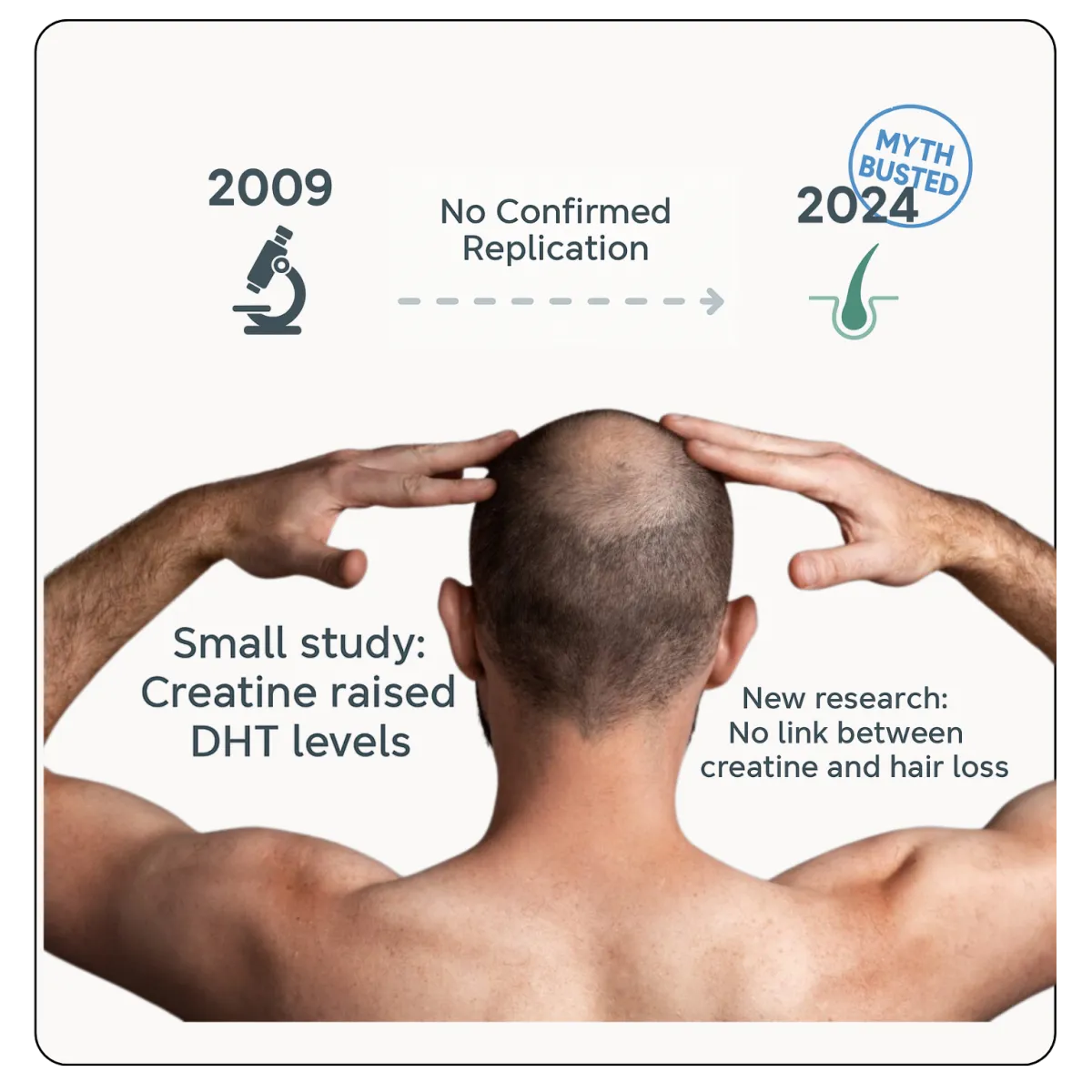
When it comes to creatine and hair loss, the concern largely stems from a single study conducted in 2009.
In that study, a small group of college-aged rugby players supplemented with 5 grams of creatine daily for 21 days. Researchers noted a rise in DHT levels — the hormone often linked to male pattern baldness.
But here's the catch:
☝🏽The study sample was very small.
‾
☝🏽No follow-up studies have successfully replicated the findings.
‾
☝🏽And more recently, a newer study has shown no changes in DHT levels — and no negative effects on hair health.
‾
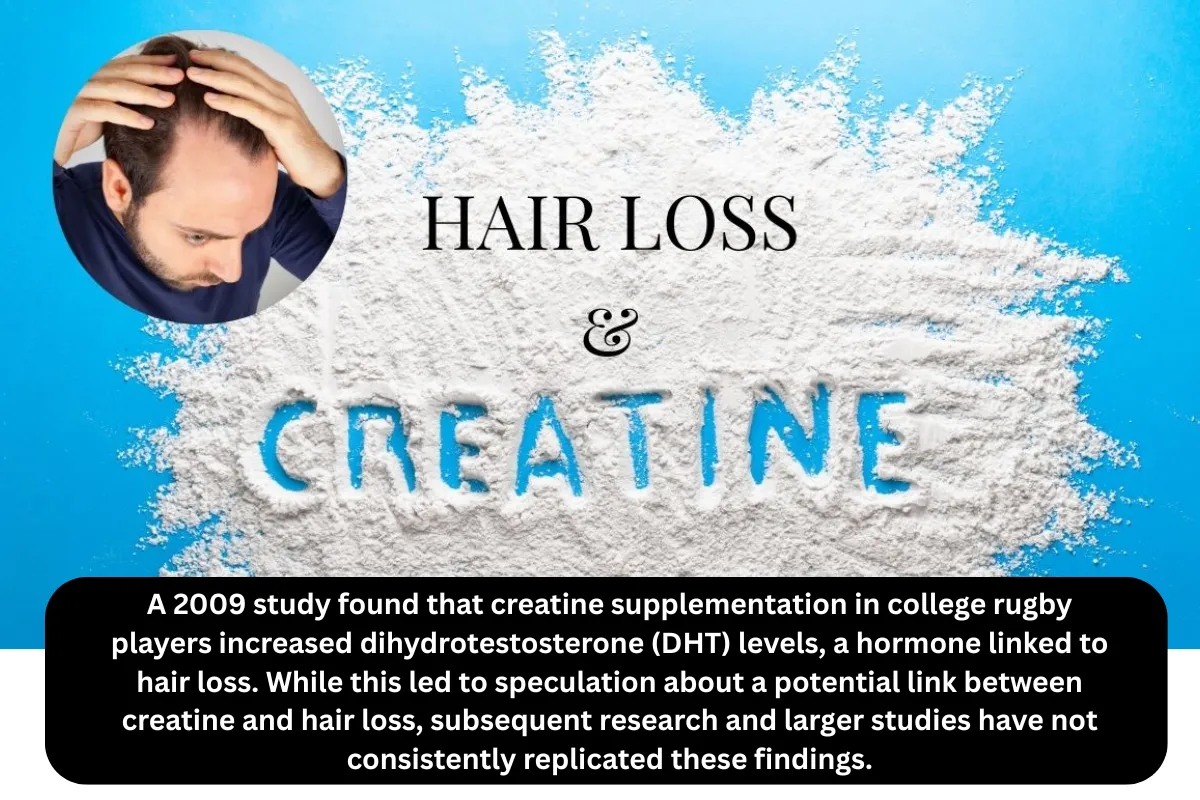
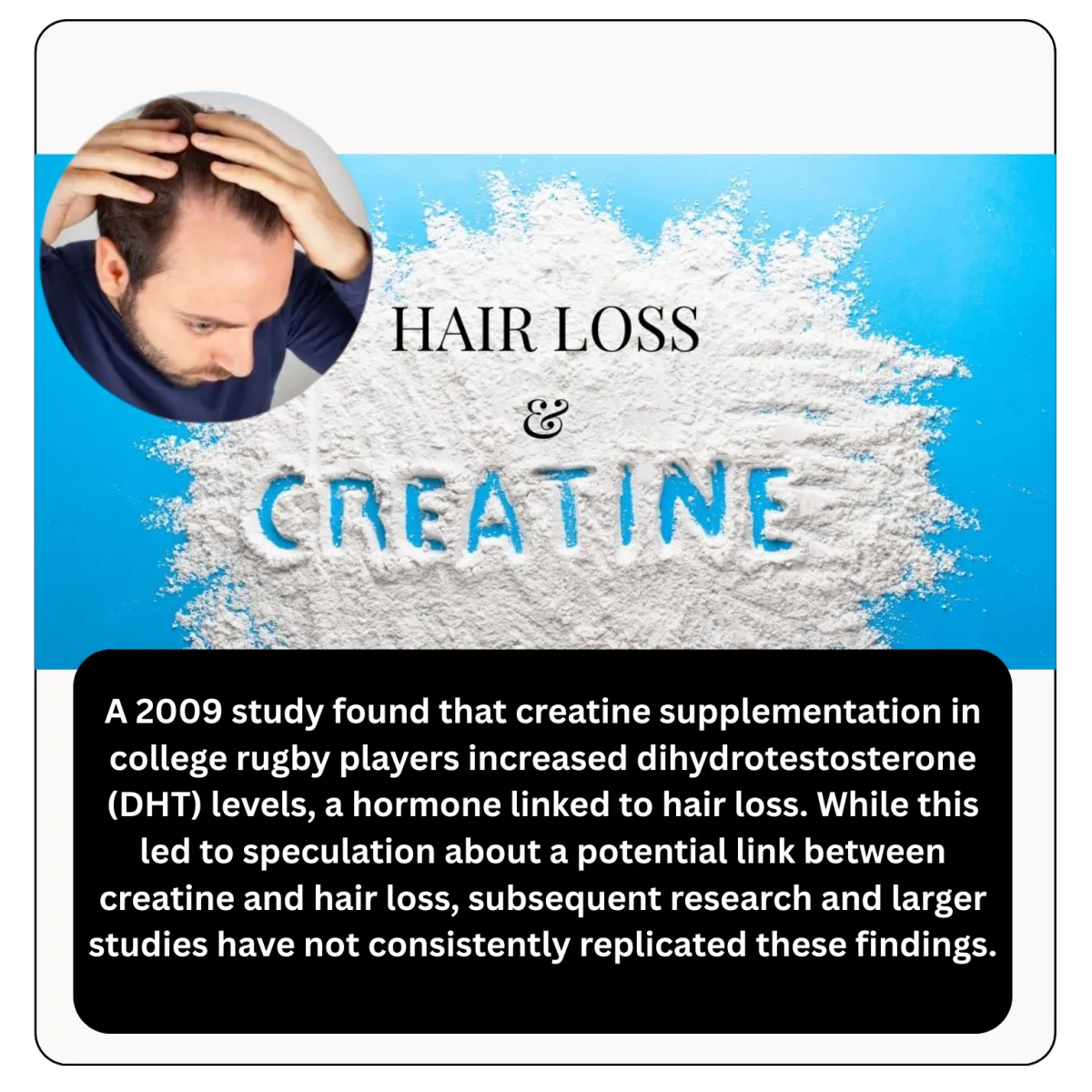
Updated study in 2025 on Creatine Monohydrate & Hair Loss
Researchers set up a simple but smart study: one group of men took 5 grams of creatine monohydrate daily, while the other group received a 5-gram placebo (maltodextrin). No changes were made to their regular eating or workout routines. Blood samples were drawn before and after supplementation to measure hormones like total testosterone, free testosterone, and most importantly, dihydrotestosterone (DHT) — the hormone often tied to hair thinning and baldness. They didn't stop there: scientists also assessed the participants' hair health using Trichogram analysis and high-resolution digital imaging — tracking hair density, follicle count, and thickness.
What did they find?
✅ No spike in DHT levels for the creatine users.
✅ No change in testosterone or the DHT-to-testosterone ratio.
✅ No significant difference in hair thickness or follicle health.

Bottom line:
Creatine didn’t trigger hair loss — and didn’t even tip hormone levels in a direction that would raise concern. If you’ve been hesitant to use creatine because of your hair, this new evidence suggests there's no reason to avoid it.
Creatine monohydrate remains one of the safest, most thoroughly studied, and most effective supplements for building strength, enhancing endurance, and improving recovery.
FAQs About Creatine Monohydrate
Q1: What exactly is creatine?
Creatine is a naturally occurring compound found in your muscles and brain. It's made from amino acids and plays a critical role in helping your body produce energy during high-intensity activities like weightlifting and sprinting.
Q2: Is creatine safe for daily use?
Yes! Numerous studies show that creatine monohydrate is safe for healthy adults, even with long-term use. Just stick to the recommended dose (typically 3–5 grams per day).
Q3: Will creatine make me gain fat or get bloated?
No, creatine does not cause fat gain. Some initial water retention inside the muscles is common (making muscles look fuller), but it’s not the same as gaining fat or "bloated weight."
Q4: Does creatine need to be "cycled"?
No cycling is necessary. Unlike stimulants or hormonal supplements, your body adapts well to consistent daily creatine intake.
Q5: Is creatine only for men or bodybuilders?
Absolutely not! Creatine benefits anyone involved in physical activity — men and women alike — and can help with energy, recovery, brain health, and even anti-aging.
Got More Questions On Creatine? Texst Us

© 2025, ProBody Warehouse Corporation. All rights reserved.
